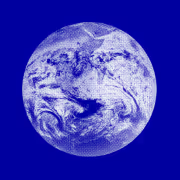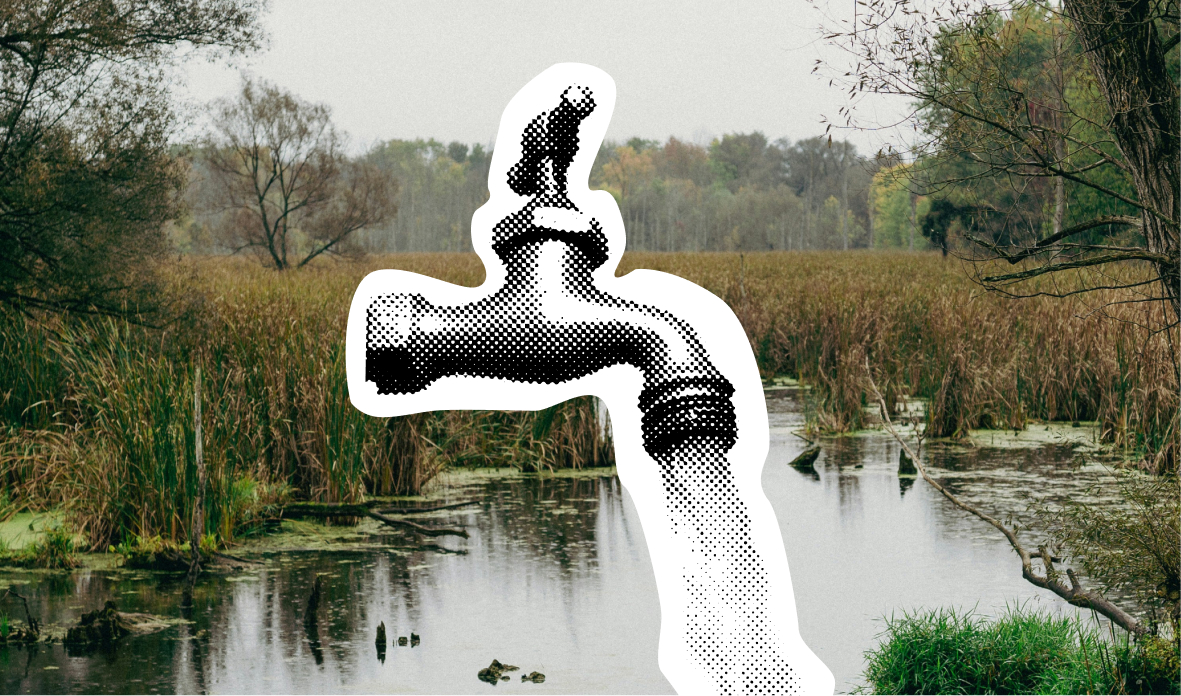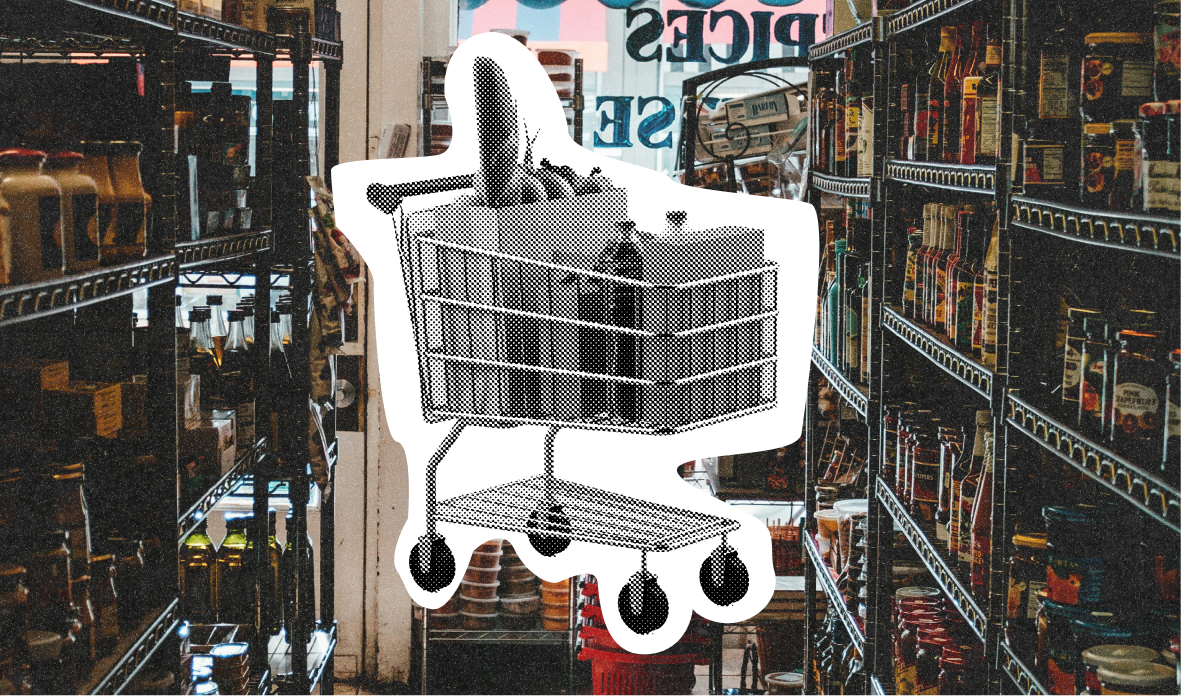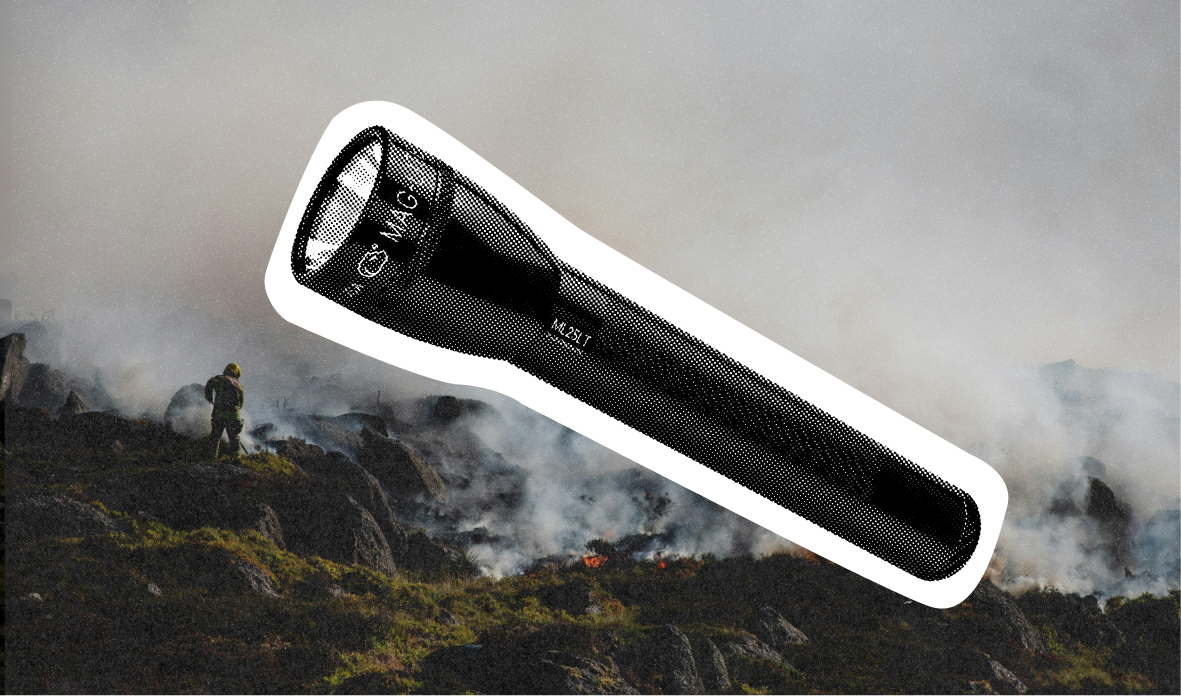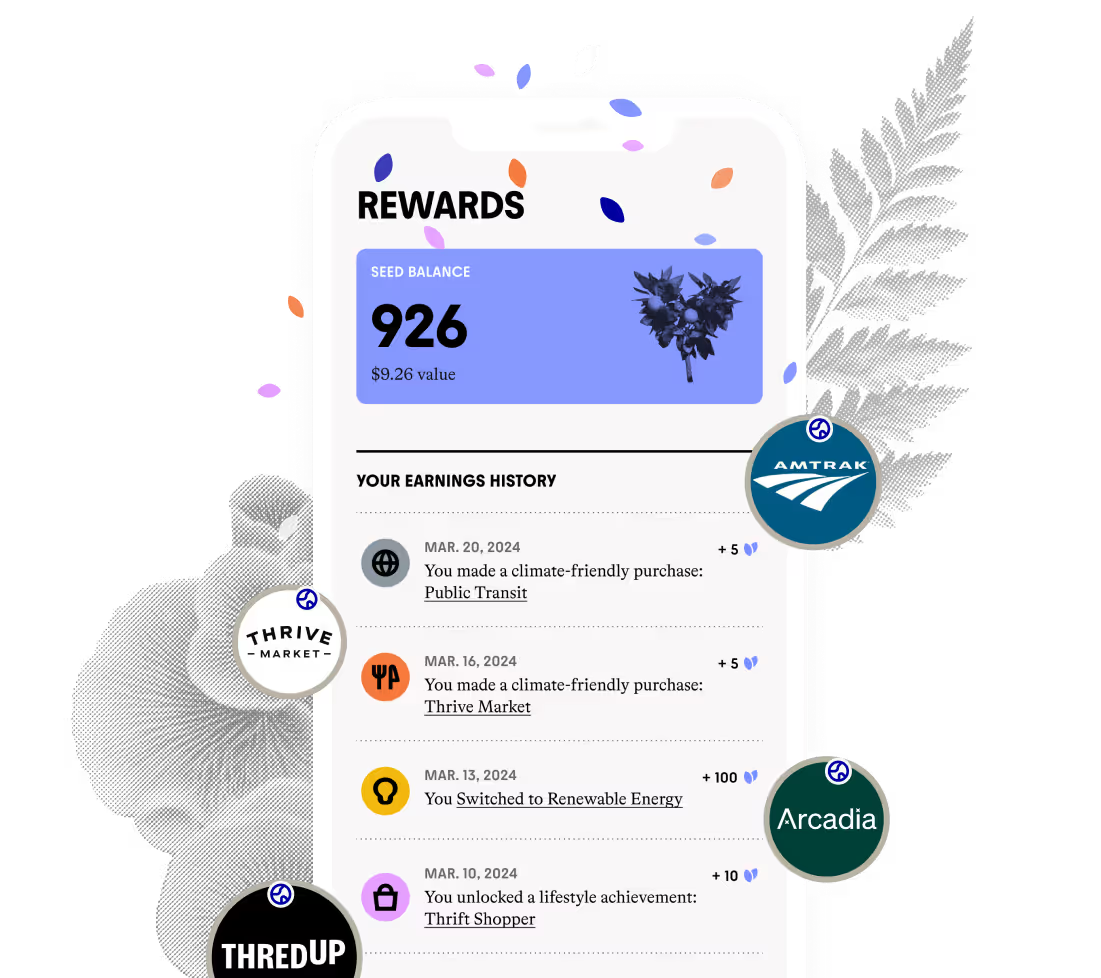Is the Patriarchy Fueling Climate Change?
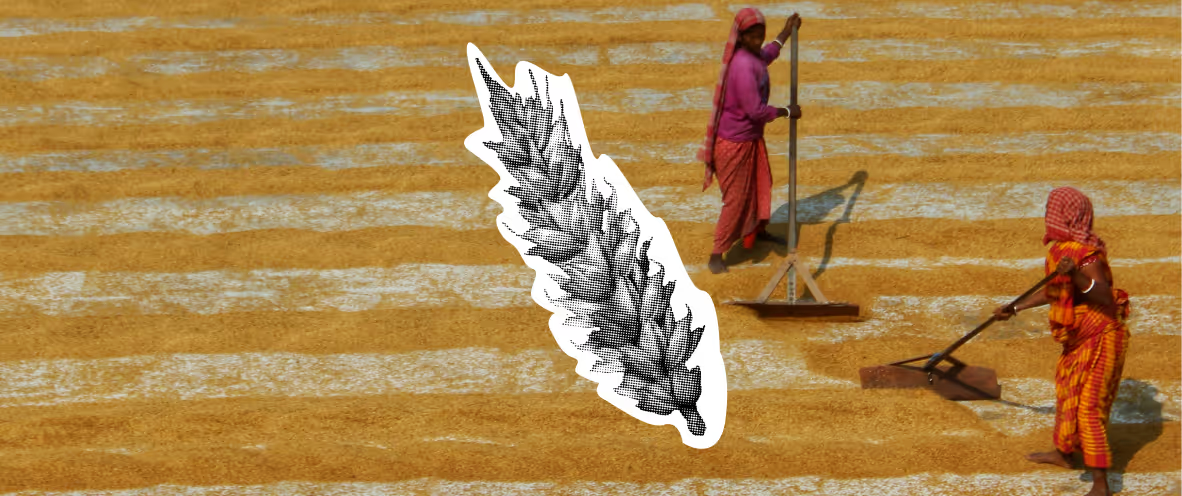
The climate crisis has a way of making hard things even harder — and that includes gender disparities. From their professional lives to their personal lives, climate change has left many women vastly under-resourced and at risk, all while taking on the heavy toll of caring for their families and communities through climate mitigation and resilience.
In this episode, we hear how the climate gender gap is affecting our community, talk to WOCAN founder Jeannette Gurung about how women continue to work through vast climate inequities around the world, and we hear from Commons' founder and CEO Sanchali Seth Pal about how health disparities women face as a result of climate disaster.
Here are some of the people you'll hear from in this episode:
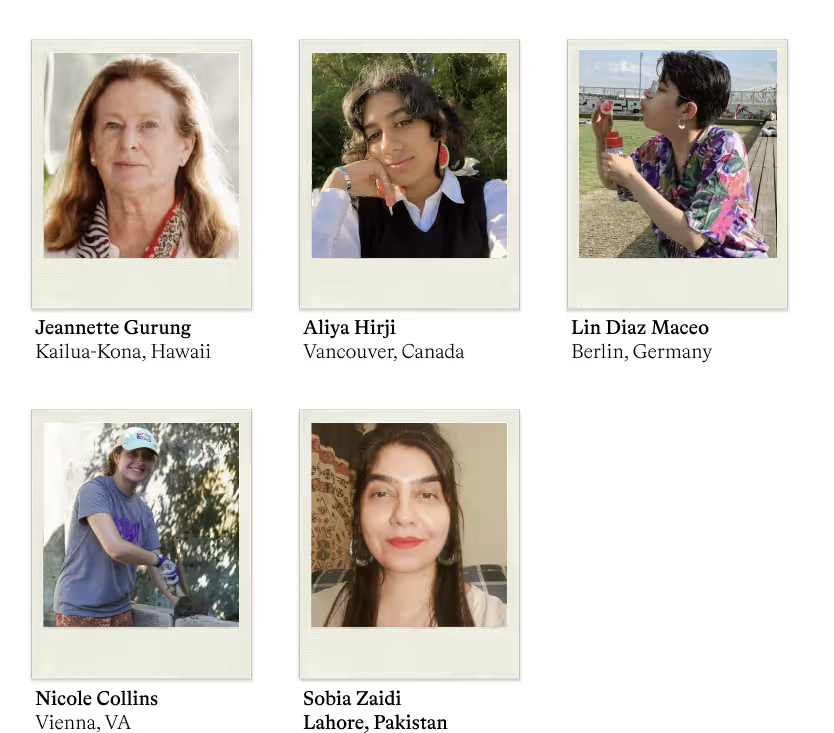
Episode Credits
- Listener contributions: Aliya Hirji, Lin Diaz Maceo, Nicole Collins, Sobia Zaidi
- Editing and engineer: Evan Goodchild
- Hosting and production: Katelan Cunningham
{{cta-join2}}
Citations and Further Reading
- Gender Bending and Gender Conformity: The Social Consequences of Engaging in Feminine and Masculine Pro-Environmental Behaviors | Sex Roles
- Climate 'Gender Gap': How Men's Love For Meat Is Driving Up Emissions
- Gender Differences in Public Understanding of Climate Change
- Climate change impacts women more. We must legislate to protect their health | World Economic Forum
- Protecting maternal, newborn and child health from the impacts of climate change: A call for action
- Climate change impacts women more. We must legislate to protect their health | World Economic Forum
- How gender inequality and climate change are interconnected | UN Women – Headquarters
- FEATURES 29 October 2020 8:00 Mapped: How climate change disproportionately affects women’s health
- Unlocking the trillion-dollar female economy | TechCrunch
- Gender Differences in Public Understanding of Climate Change
- Why women are key to climate action | United Nations
Full Transcript
Katelan (00:00):
Hey, welcome to Second Nature, a podcast from Commons. If you haven't heard of it, commons is the app that over 100,000 people use as their first stop shop for sustainable purchases. And on this show, we talk to people about how they're living sustainably. In an unsustainable world,
Katelan (00:20):
The climate crisis has a way of making bad things even worse. Drought prone areas get more drought, storm prone areas get even more severe storms. You get the idea, but it's not just amplifying catastrophic weather events. Climate change also amplifies inequities in society, including gender gaps. This is not a theory or prediction or a far off reality from their health to their livelihood. Women are already experiencing more drastic effects of climate change. So we wanted to explore this climate gender gap to better understand how it's already affecting women's lives. Before we get any further, a note about the words man and woman, in this episode, we're gonna be referring to studies that unfortunately don't clarify if they are differentiating by sex or by gender. For accuracy, we're gonna reference this data with the same language used in those studies. In fact, this is a great segue into the thesis of this episode. Whether you align with them, ignore them, or defy them. Binary gendered stereotypes greatly affect how we're perceived by others and sometimes how we perceive ourselves. Today we're not going to talk about how all people who identify as men are red meat loving fossil fuel guzzlers, or how all people who identify as women are vegan plant loving gardeners. We are going to explore how gendered perceptions are getting in the way of real climate progress for everyone. I'm your host, Katelan Cunningham. Let's get into it.
Katelan (02:04):
There are stigmas around masculinity that conflict with some pretty big proponents of living sustainably, eating a lot of red meat, driving a big truck, not carrying a reusable shopping bag.
Katelan (02:19):
That last one might seem strange, but researchers at Penn State found that men aren't as inclined to carry a reusable shopping bag because they're worried about being perceived as a effeminate or gay. I was a little shook by that. I'm not gonna lie. Meat and fuel may not be as surprising, and the desire for these manly stigmas may very well come from societal expectations and pressures. There was a study out of Australia that found men who ate meat, believed that they were more manly than people eating vegan diets. The study's author wrote, our findings suggest that men in Australia resist giving up meat because eating meat is a way of enacting their masculinity. Even preschool aged boys implicitly associate meat with maleness.
Katelan (03:07):
As we're getting into grilling season, it's kind of easy to imagine why this could be the case. Think about all the grilling commercials you see. There's usually meat on the grill and a man holding the spatula. Maybe he's wearing a punny apron. But when I try to evoke an image of a man in media eating a salad, I mean, of course I've seen men eat salads. But I guess I'm saying if there were a Bechtel test for men eating salads in media, or even women eating meat, I think the findings would be as stark as what we see from the actual Bechtel test. But I digress.
Katelan (03:44):
It seems like these long ingrained stereotypes, they don't exist because men don't care about the planet. It's only relatively recently that more people are starting to realize the massive environmental impact of meat, for example. But a Swedish study in 2021 found that men emit 16% more greenhouse gases than women because they tend to spend more money on high emission things like meat and fuel. On the other hand, there are some feminine perceptions like women loving clothes or makeup or home decor that certainly rack up a notable amount of emissions. But there are also expectations like making purchases for the family, caring for the family, and the land that start to ever so discreetly put the onus of mitigating climate change onto women. Yale did a study and they found that a similar proportion of men and women believe in human caused climate change, but women worry about it more and have higher risk perceptions that climate change is going to harm people, plants, animals, and future generations. We wanted to ask you our community, how you've experienced the climate gender gap in your own lives.
Nicole (04:57):
I have a lot of mixed feelings about this and about the gender climate gap in general.
Nicole (05:04):
The first is that I feel validated. I am consistently working with women and non-binary dominated spaces who put in an extensive amount of labor and love and energy into these movements. And I think that it's important to recognize the work that we're doing When we look at aspects of care and love and nurturing. A lot of times that is associated with femininity and I have no problem with that. But when we live in a patriarchy that devalues feminine labor, we're also devaluing all that is associated with women, and that includes the environment. I do often feel quite burdened by that responsibility. And um, this sort of leads me to the third way that I feel, which is concerned. We have a very male dominated political society right now. And when we have men statistically being less interested in and less passionate about environmental issues, it does lead to this petro masculinity, this concept of environmental destruction being tied with masculinity and tied with violence.
Nicole (06:07):
And that doesn't mean that all men are like this. Obviously I have quite a lot of lovely men in my life who care a lot about the environment and about the women who are doing so much work for the environment. But it does lead me to be quite concerned about this gap. And eventually I do see this as an opportunity once we address a lot of the feelings that a lot of women who are part of this climate gender gap feel, we can mobilize this into an opportunity to teach men more about climate change and start removing misogynistic concepts about the environment and misogynistic concepts about social movements and movements of love and care. It's likely to be a slow process, but it, it really does show that climate action and women's liberation comes hand in hand.
Lin (06:53):
I think of the gender climate gap as both an opportunity as well as a burden given that women or people like me who were assigned female at birth and socialized that way are still being pushed into caretaker roles no matter in which relationships. This can unfortunately to burnout in climate activism since the societal expectation that they will take care of nature, the environment, the land, the waters can easily lead to sort of leniency and a lack of accountability. At the same time that gender climate gap can bring up discussions about interdependence, interconnectedness and the ways we view care in and of itself.
Aliya (07:35):
I was in a sustainability organization in my college and the majority of members are women. But it's also not surprising because when you look at eco feminism, women have always been on the front lines. I find that a lot of my friends that have environmentally positive tendencies that care about climate change, that actually take action, go to marches, do the things our women, it's upsetting because climate change impacts everyone. It's not a gender issue, but women are more impacted by it because of their history of being oppressed and exploited. And it's not our job to make people care because we care, because we inherently care so deeply about our home, about what's happening to our families, to our communities. It shouldn't be on us to be the ones to take action, but it is, it's so easy for us to be dismissed and ignored and put down because of the role that society has put us in because of the way the system works. But I think it's also a really important opportunity to expose the system for what it does, what it has done with hopes of creating a new one that actually works for everyone and is focused on reciprocity and care.
Sobia (09:07):
Women have historically been assigned roles to nurture life and to maintain balance in their communities in a way. I really love that. It makes me really proud to see that this legacy is attached to women, but it's sort of, um, bittersweet in a way because there's a, this proportion in emotional and physical labor when it comes to addressing the concerns of climate change or taking action towards it. So there's this kind of injustice and inequality there that we all can see there's an imbalance there. I also feel like this is something that I believe in as well. So I'm more deliberate and I'm doing it from my own autonomy rather than being assigned that kind of role. Of course there's inequality and which makes me slightly <laugh> annoyed at times and sort of frustrated as to why, you know, men can't see that this climate gender gap shows up in my community I'm in, I mean, in Pakistan where gender roles are so pronounced as a psychotherapist, I see that physical stress in women a lot emotional stress.
Katelan (10:28):
The climate gender gap shows up differently for different people in their own lives, their homes, their schools, their workplaces, the perceptions and expectations that skew how different genders experience climate change. Their rippling out to have real effects on everything from women getting their climate projects funded to their own health and safety. I called up Jeanette Gurung to talk more about this. Jeanette is the founder and executive director at WOCAN, which is a network that supports women's leadership and empowerment and gender integration in Africa, Asia, and Latin America. She also has a master of science in forestry and a PhD in gender and development. Hi Jeanette, thanks for coming on the show.
Jeannette (11:14):
My pleasure.
Katelan (11:15):
Your work at WOCAN focuses on the roles and representation for women working in agriculture and natural resource management. And I wanted to start by asking why are these the sectors that you wanted to focus a decade plus of work on?
Jeannette (11:31):
That's a great question. I think it's because of who we are, who I am. I'm a forester. I started out my career as an environmental scientist. I never thought of studying forestry, but I was a Peace Corps volunteer in Nepal and I was living in a community where I was starting to become aware of the connections between the natural resources, the way they were managed and the community. Mm-hmm <affirmative>. So I think my experience was also born out of frustration of being a woman in these kind of very male dominated sectors of agriculture, forestry, natural resource management. The second reason is because of the outstanding and dominant biases that exist within these sectors. As I said, very male dominated and in these sectors they often don't see women. Hmm. And they don't see their contributions to, to the environmental management or the agricultural productivity. Mm-hmm <affirmative>. So for example, even in agriculture, which is kind of still shocking to me, when you think of a farmer, everyone around the world I would say automatically imagines a man as a farmer.
Jeannette (12:38):
And so this is defying the reality based on the statistics that show us that the most of the farmers of the world are women. And in some countries it's really almost entirely women. And yet this narrative and this perspective of the farmer as male persists, it also means they can't get access to training, they can't get access to land titles, they don't get access to financial resources because the world continues to see them as women who are sitting in their homes doing more, what we might call traditional roles, when actually they're very much out there in the environment and managing it.
Katelan (13:16):
You and I were talking a little bit about that before about how women are kind of known as caregivers in the home and how it seems like they're also being asked to maybe, or, or maybe by default are taking on the role of caregiver of the planet as well.
Jeannette (13:32):
And, and this is what we're talking about. There's so much attention to the unpaid roles of women. Mm-hmm <affirmative>. Primarily again in seeing them in their domestic responsibilities for caretaking of children and the elderly. And that it usually extends out to the community. And I think it's pretty well recognized that women are, um, often primary contributors to whatever happens in the community. But our point here is that yeah, they are also taking care of water resources, forest soil and other things, often not because anybody's telling them to do it. It's either for their own self good because they're relying, this is very important. Women rely and they understand very deeply their reliance on the, the, the condition of those natural resource management for your forest and your soils. If your livelihood and your whole family's survival depends on the food that you can produce, you have to make sure that the soil is productive.
Jeannette (14:33):
If your energy resource is dependent on the forest, you have to make sure that you have access it. And so it's also for their own self-interest, but also I think many women understand and have a deeper connection also to understanding why the environment needs to be protected. So you will see women around the world preserving forest and also not only preserving seed ladies and things like that, that may be planted, but also guarding the forest and keeping out the intruders who might be coming in to steal things from the forest, for example. That's very common. So we've been trying to make the argument, not only should that rule be recognized, but I would even argue it should be compensated that these women as a result of this activities are actually producing global goods that all of us benefit from the fact that they're reducing carbon emissions and safeguarding water supplies and forest resources and things like that.
Katelan (15:30):
You've been in rooms and conversations where high level climate decisions are being made and I'm wondering if you're seeing women well represented in those spaces.
Jeannette (15:40):
It's a relative question. What is well represented? I, you know, I've been around for a long time. Right? So wcan, we were with a small group of organizations, not really women led organizations, but there were women champions in these environment organizations who along with Whan in the early days of the climate meetings, was advocating and pushing for gender in those days. Katelan, I would say that far fewer women than now. So I mean, it depends at what point you come in on the process or what point you can look backwards and have a historical perspective. I mean, yeah, there's a lot more advocacy group, there's a lot more media attention. There are never enough women. Until we achieve par, we'll never be satisfied. Right. But the other thing to understand is that just having women in those positions does not necessarily mean that the results trickle down to all women.
Jeannette (16:32):
Even at the grassroots level. A lot of women, particularly in working, and I even did a PhD thesis on this topic, but just because you're a woman, um, doesn't, especially if you're coming up through a field of forestry or agronomy or something that's very male dominated, you aren't necessarily looking out or even with a mindset for the interest of women at the community. So we can't assume that a woman in a position is necessarily making that. But yes, I think there, there are many more. There's also been a move away, and this is critical from seeing women as victims. This has got to stop. I, I always say I will not use the v word of victims. It's not to underestimate the vulnerability of women and other marginalized peoples, for example. Mm-hmm <affirmative>. But to put them in a position of victimhood is demeaning. It lacks respect for them and it does not acknowledge the incredible engagement they have on a positive site. Um, whereas if you see that they're in fact active agents of change or they have active responsibility, they may not have all the same lights that men have, but because they're out there interacting and they're on a daily basis engaged with the environment, so they are at the front line, we've gotta move away from that narrative a hundred percent
Katelan (17:52):
For every new climate project around the world. There are standards and rules for people to, for these companies and, and nonprofits and organizations to adhere to, which makes them accountable and responsible for that project's effect on the land and the ecosystems. And at wcan you created the w plus standard, which is specifically focused on how a project impacts women. I was wondering if you could tell us a little bit about that standard and how projects have used it.
Jeannette (18:19):
I think the thing that's of interest is why we created the standard. I mean, we are a women-led membership organization involved for decades with capacity building for gender integration within these sectoral institutions. Why did we suddenly come up with this idea to create a standard? Well, we took the hard look at what we were doing. We said there is not a large enough stick nor a large enough carrot that's bringing about the kind of change we need to see within these, again, agriculture and natural resource management institutions, be they private or public. So we thought we have to do something different. The other problem that is really for us key is that Wcan recognizes the tremendous, and I would say as yet untapped potential of women's organizations and women's collectives. I'm talking about cooperatives or women's organizations. And this is not just at the grassroots level.
Jeannette (19:16):
This is up and down the scale even to international level women's organizations. They are enormously underfunded, struggling all the time, starving for attention. The official number states that 0.01% of all climate finance makes it to women's organizations. That is so trivial it should be shouted from the rooftops. Right? So having said everything I said about women being agents of change and involved in this kind of responsibility with no resources. So we thought those are two things we need to incentivize change amongst these project developers or the people who do have money. And we need to find ways to bring additional resources to women's organizations. We were inspired by carbon markets and that may sound funny, but carbon markets in their, in their purest form, were measuring results within environment projects, right? And then finding a way to make payments to those results in order to come up with more capital to fund projects.
Jeannette (20:21):
So I thought, huh, could we use a similar market-based approach where we would pay for results, but instead of measuring carbon, we're gonna measure women's empowerment at the project level, not in the company or, right. And by doing this, could we incentivize, could we make it financially attractive for a project to do more for women and to engage them more and to do it in a way that's not a box checking exercise. 'cause that's very common. Oh, we had women participate in a meeting, check, done. What's even the result of putting women in a training course? Unless you're measuring what happened as a result of that new knowledge or that new leadership capacity? Did it make a difference? Right. And so we started out meeting with women we knew in rural pena and rural Nepal within groups of women. And we said, what is women's empowerment mean to you?
Jeannette (21:16):
What would we look for? What evidence would we find? What are we measuring? And they provided us with these six domains, which are time saving, knowledge and education, income and assets, health, food, security, and leadership. And so then our team developed the qualitative and quantitative indicators to measure against that. So, so far, this is w plus has been standard, has been used in about 25 projects around the world. From cooks stove projects to forestry projects to banking, uh, in the banking industry, teaching women how financial literacy. So all kinds of applications. I think what's interesting maybe to your audience as well is it's possible in a project that is measuring carbon, you can add a social outcome credit on top of the carbon credit, which is what we can do with the w plus. Then you can offer the buyers a chance to support carbon reduction projects at the same time they're supporting women's employment.
Katelan (22:17):
You've been working in climate gender equality for a while and all climate work in general can feel like an uphill battle. But when you add gender inequity on top of that, I'm sure it's not easy at all. So I'm wondering what wins have kept you going either personally or in your work?
Jeannette (22:34):
You know, Caitlin, it's a good fight because it's my cause, right? It is. It's so personal to me as a woman personally influenced by that kind of bias. And you know, I'm a white American, well educated privileged woman. Mm-hmm <affirmative>. And so if I have the struggles like this, I should be able to enable something to happen. And which is why we set up Boan as a membership organization because I know there's women like me all around the world and instantly people responded to that. So I get a lot of energy from other women. My energy comes from frustration that seems to drive me. I get a lot of excitement from bringing things together. Like the fact that I'm a gender expert and a forester, right? The fact that I'm a social scientist and a physical scientist bringing these together, bringing investors together with corporates, with, you know, groups that have, may share similar goals, but it's not easy always to define those things.
Jeannette (23:33):
And I'm just a very practical person. So I like coming up with very practical solutions. They, those organizations also have dreams and you can see what they can do. And you think, my God, what donor or funder would not look at that and think, I could multiply this impact a hundred times with such a small financial contribution. I will go happily to my grave on the day when these women's organizations start to receive some of this funding that could be done by the w plus ecosystem once and until that happens, it's yes, the struggle of building the market and saying the same message for 10 years to people, it gets tiring, right? But once we can start to see, particularly that money flow down to the grassroots, not as grant payments, all of us are fed up with grant payments. You have to compete against 7,000 other great organizations. You're not gonna get it. Let's just pay people for what they do well and the contributions they make to the planet.
Katelan (24:34):
Thank you so much for sharing and thank you for all the work that you and your team are doing at WOCAN. I will continue to follow it and I hope our audience will too.
Jeannette (24:43):
Thank you so much Katelan.
Katelan (24:51):
So we've talked about how gendered perceptions can hold back everyday climate action and how it's frustrating for many women to feel this burden to care for the environment while lacking the visibility or support to actually make big changes. What exacerbates this frustration is that women are disproportionately affected by climate change in some pretty drastic and scary ways. There needs to be a lot more work put into studying these effects. But I called up comments founders in Sanchali Seth Pal to talk about what we know so far. Welcome back Sanchali.
Sanchali (25:25):
Good to be back. Thanks, Katelan.
Katelan (25:27):
People often think about climate effects as things like trees getting cut down or animal species going extinct, but it's even bigger than that. It's affecting people's health and wellbeing too, right?
Sanchali (25:40):
Yeah, it's, it's kind of terrible branding and messaging. It's like not about abstract threats to the climate, it's about threats to life on earth, like threats to our own lives and the health of our communities, of the people we love. I personally really was not motivated to work on climate or environmental work until I really understood that personally, I love going outside, like I love nature, I love flowers, going for walks, sitting by a tree, <laugh> gonna the beach, but I'm not like a rugged, outdoorsy adventurer or anything.
Katelan (26:15):
So you're not out there in the woods with like bare grills or anything?
Sanchali (26:18):
No, I would not really survive in that context. <laugh>. I am personally really motivated by working on economic equality and wellbeing. I love working on things that help people and communities prosper. That's kind of my background. I worked in economic development and my background is in economics, and when I was living and working in India and Ethiopia before starting Commons, that's when I really started getting motivated to work on climate. I was working with farmers and agriprocessors in Ethiopia, and I saw firsthand just how much the effects of the climate crisis were directly impacting their livelihoods and health. And that's when I really realized that climate is not so much about leaves and plants. I mean those things too, but it's about our own wellbeing and our ability to thrive.
Katelan (27:03):
We really don't hear a lot about how climate is affecting people's health.
Sanchali (27:08):
It's true. Even at the highest levels in climate, you know, the UN's annual Climate Change conference is called cop. They didn't even have health on the agenda until 2023. I
Katelan (27:18):
Can't believe that. That is wild.
Sanchali (27:21):
I know. It's like that's what this is all about. But 2023 was the first time that health ministers attended cop. And as far as the effects of climate change on women specifically, that's even less studied, but it's an area that is starting to get more attention. Okay.
Katelan (27:36):
Tell us more.
Sanchali (27:37):
According to the UN environment, 80% of the people displaced by the climate crisis are women or girls. When they have to move to locations that are safer from climate disasters, they're also put at higher risk of poverty, violence, or even unintended pregnancies. Climate can also impact people who are pregnant. High air pollution and extreme heat have been associated with preterm birth, low birth weight, and health complications for birth parents.
Katelan (28:03):
When we hear that climate change affects women disproportionately, people might think, oh, a woman might not be as able to like withstand a storm or a drought or a fire, but it's kind of like the ripple effect of what happens after those types of disasters.
Sanchali (28:18):
Yes, exactly. Climate change is an all around threat multiplier. Basically rifts tensions and disparities from economic to social, they're all amplified. When you have a climate threat, there's higher strain on our resources. When something like that happens,
Katelan (28:33):
I imagine that the threat is even bigger for girls and women of color, those with disabilities, older women and LGBTQ plus people.
Sanchali (28:43):
Absolutely. Women and other vulnerable and minority communities tend to have the fewest safety nets making them the first to suffer and the last to recover. And there's also a real lack of research on what the specific impacts of climate change are for these communities.
Katelan (28:58):
Yeah. I mean, that really hits close to home. I think when we had the LA fires here in January, it became very clear how people who are more vulnerable are even more impacted by things like the LA fires or people who were living paycheck to paycheck and lost their jobs because their jobs were tied to other people's homes. It feels like you're one disaster away from this huge strain on our personal resources and finances.
Sanchali (29:24):
Yeah, that's so true. And it brings to mind the fact that in a lot of these situations, women bear the disproportionate responsibility to secure basic resources for their families and communities. And when there's disruptions like a fire or a flood or something like that, it's often women who first have to leave work or leave school to help their families withstand the threats that they're facing.
Katelan (29:49):
Yeah. Earlier we asked our community if the climate gender gap feels like an opportunity or a burden for women. And generally people felt like it was both, because it feels like the traditional role of women as caregivers also is extending to them needing to care for the planet as well.
Sanchali (30:08):
Yeah, it's kinda interesting. It's like this opportunity in some ways, women are making a lot more of the spending choices in the US we're making 85% of the day-to-day spending choices for our families.
Katelan (30:21):
And on one hand, that's great. That's a lot of power, but it can also come with this guilt and burden of needing to switch to more sustainable products. It's a powerful thing, but it can also be super stressful if you're the one who picked the sustainable toilet paper, but everyone hates it and it's all your fault and you don't hear the end of it
Sanchali (30:39):
<laugh>. Exactly. Yes. That's so relatable. But yeah, I mean, inside of the home and outside of it, women are making essential choices, and we do see that putting women in more decision making roles can have positive effects, not only for women, but also for their families and communities. There's actually un research that shows countries with higher proportions of women in parliament are more likely to ratify international environmental treaties and have stricter climate policies at the national level. And it's true in business too. Gender diverse firms tend to have better environmental reporting and climate governance than their peers, and they tend to make more investments in renewable power and energy efficiency.
Katelan (31:19):
So supporting women is an effective climate solution.
Sanchali (31:24):
Yes, we need to first acknowledge all the essential resilient work that women are doing for their families and their households. We need to account for these roles when we're thinking about climate mitigation and disaster preparation. It's incredibly important, and we also need to empower women to be more prominent in leadership where their impact can be even greater in helping build climate resilience in their communities and their countries.
Katelan (31:47):
This has been so illuminating. Thank you so much, central. Thanks. It's always a good time to gut check our perceptions, whether it's the perception that makes us think carrying a reusable bag isn't manly, or the perceptions that lead to stereotypical expectations of women's work expectations that blind us to the danger and repercussions of this work as it becomes more difficult and dangerous through each climate disaster. Climate change is stretching out those gaps and resources, stability and safety for women, but also for minorities, for people, poor people, people living with disabilities, seniors, many of us, myself included, are late to understanding how climate change disproportionately impacts under acknowledged communities. But we can and should and must start fixing that right now. Thank you to our generous listeners who shared their personal experiences with the climate gender gap today. You heard from [credits]
Katelan (32:57):
As ever, this episode was edited and engineered by Evan Goodchild. It was written and produced by me, Kaitlyn Cunningham. We'll be back here next week, but before you go, I wanted to leave you with a really great climate podcast that should definitely be on your playlist.
Speaker 8 (33:31):
Hello, person who has a brain. I'm Dave and I've got a podcast for you. It's called Your Brain on Climate, A show about human brains, how stupid they are and how that's getting us into climate travel, but how amazing they are and how that might help get us out of it. I talk to champion endurance athletes, nutritionists, TV presenters, speech writers, comedians, activists, chess, grandma, experts in how the brain works in a way that might tell us something about climate change we'd never thought before. I love making your brain on climate. I learn something new every time, and I hope you will too. Check out your brain on climate, wherever you get your podcasts.



